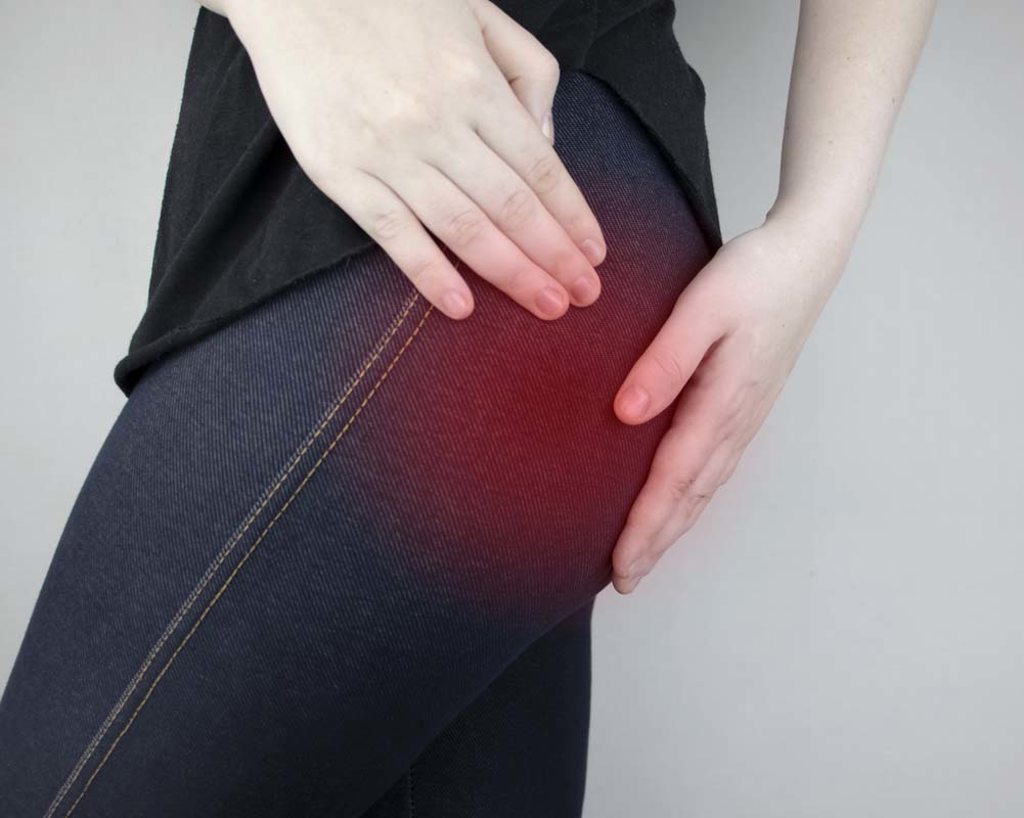
Could your lower back pain be sciatica?
Back pain is the third most common cause for doctor visits in the United States, and about 40% of Americans will experience a type of lower back pain called sciatica at some point in their lives. If you’re experiencing pain that starts in your lower back and radiates through the hips and buttocks down through the back of the leg, it may be sciatica.
What is sciatica?
Sciatica refers to any pain along the sciatic nerve, which is the longest and thickest nerve in the body. It’s made up of five nerve roots that originate in the gluteal region and come together to form a sciatic nerve on each side of your body. The left and right sciatic nerves run through the hips and down each leg to the knee.
What causes sciatica?
There are many factors that contribute to sciatica, but the most common cause is a herniated disc, also called a slipped disk. Herniation occurs in the discs that cushion the vertebrae in your spine. When a herniation occurs, the pressure from the vertebrae causes the disk to bulge out and press on the sciatic nerve. Although herniated disks can happen at any age, it is more likely to occur after the age of 35.
“As you age, the disks in your vertebrae become less flexible and more prone to tearing or rupturing with even a minor strain or twist,” said Ghassan Bejjani, MD, Chief of Neurosurgery at Penn Highlands Healthcare, who provides highly specialized care for neurosurgical conditions.
Another common cause of sciatica is spinal stenosis, the gradual narrowing of the spinal column. As the column begins to narrow, the vertebrae compress the spinal nerve, which can potentially put pressure on the sciatic nerve and cause pain and numbness down one leg. Sciatica is a symptom of spinal stenosis, but not all individuals with spinal stenosis will suffer from sciatica.
Pregnancy also causes a form of spinal compression that can affect the sciatic nerve.
“When you’re pregnant, your body releases a hormone that relaxes your ligaments and widens the cervix,” said Dr. Bejjani. “The loosened ligaments and the excess weight can make you more prone to having a herniated disk, which can pinch the sciatic nerve. Also, as the uterus enlarges, it can pinch the sciatic nerve in the pelvis.”
Sciatica can occur at any stage of pregnancy, but the third trimester is the most common time pregnant women experience it.
What are the symptoms of sciatica?
Most symptoms occur in the hips, lower back, legs and feet. For some people, the pain from sciatica can be severe and disabling. For others, the pain might be infrequent and irritating, but with the potential to get worse. Common symptoms include:
- Lower back pain.
- Pain in the rear or leg that is worst when sitting.
- Hip pain.
- Burning or tingling.
- Weakness, numbness or a hard time moving the leg or foot.
- Constant pain on one side of the buttocks.
- Shooting pain that makes it hard to stand up.
If you consistently experience any of these symptoms, schedule an appointment with your doctor as soon as possible.
How is sciatica treated?
Fortunately, many cases of sciatica go away over time with simple treatments like applying ice and hot packs, taking over-the-counter medication and performing gentle stretches.
Since sciatic pain effects everyone differently, self-treatments may not be sufficient. If six weeks of self-care treatments do not work, contact your doctor, who may suggest other treatment options like physical therapy, steroid injections and surgery.
“Most cases of sciatica do not require surgery, in fact, more than 90-95% resolve without surgery,” said Dr. Bejjani. “Time and at-home treatments are usually all that’s needed. But if your pain persists for more than four to eight weeks, be sure to talk to your doctor. Also, there are some cases where more immediate attention is needed. It is when there are what we call ‘red flags,’ such as loss of bowel and bladder control, leg weakness, saddle anesthesia, associated fever, night pain and sweats among others. These symptoms could indicate a more urgent and serious condition requiring immediate attention.”
If you have low back pain, Penn Highlands Healthcare offers expert care close to home. The spine specialists can evaluate your back pain, order imaging tests, and provide nonsurgical treatment without requiring you to drive very far. For more information, visit www.phhealthcare.org/spinecare.

